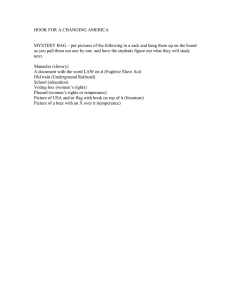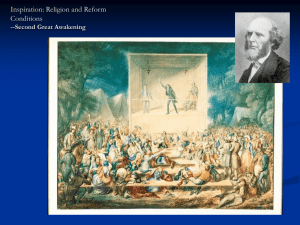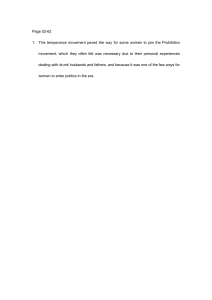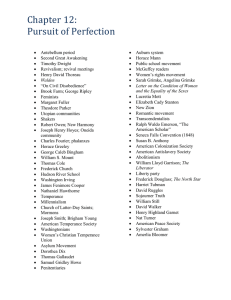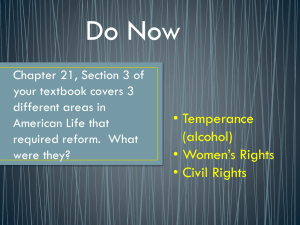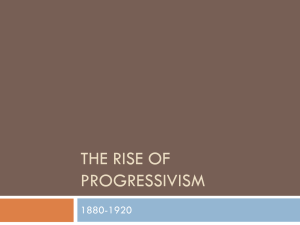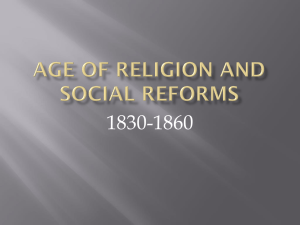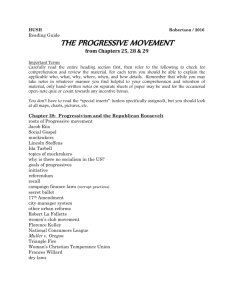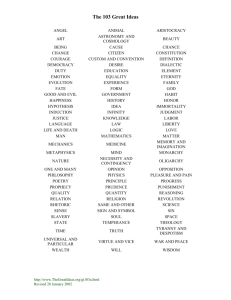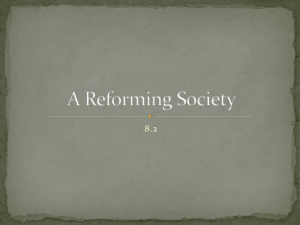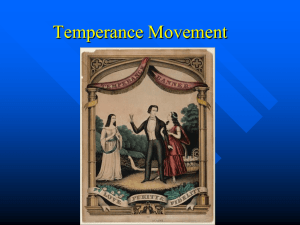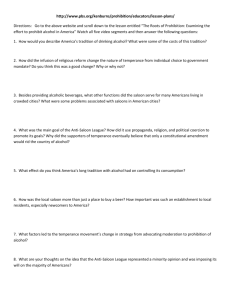Four Goals of Progressivism Social Reform
advertisement
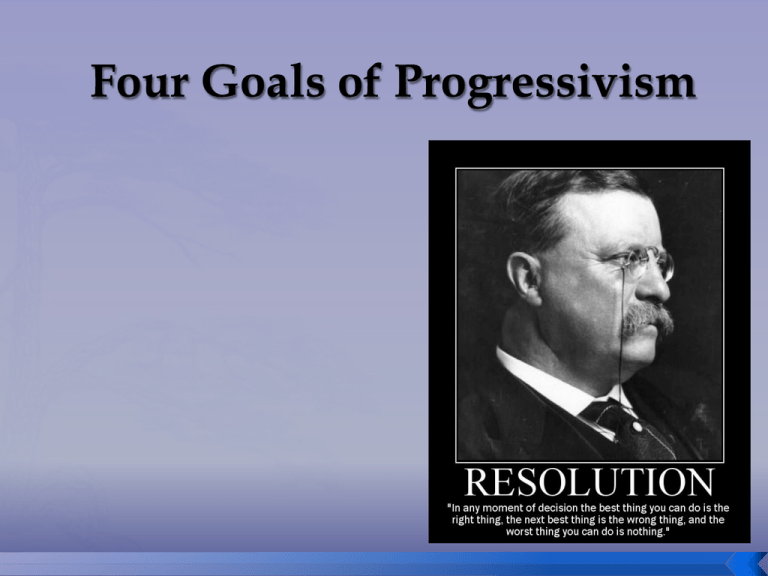
Populism 1890s Political movement seeking to advance the interests of farmers and laborers Progressivism 1900-1917 Seeking to return control of the gov. to the people; supported by middle class city dwellers Relieving urban problems Social Gospel Movement Christians have a responsibility to help improve working conditions and alleviate poverty Ethical justification for gov. intervention YMCA Opened libraries, swimming pools, sponsored classes Salvation Army Fed the poor, cared for children, temperance Morality holds the key in improving the lives of poor people, not the work place Prohibition – temperance Women’s Christian Temperance Union Laissez-faire economics gov. should leave the economy alone Socialism Muckrakers Coined by Teddy Roosevelt “raking the muck” Ida M. Tarbell History of the Standard Oil Company – Rockefeller and his monopoly Definition: Political and economic theory advocating that land, natural resources, and chief industries should be owned by the community as a whole Collective ownership by all the people of the factories, mills, mines, railroads, land and all other instruments of production American socialists condemned social and economic inequities, criticized limited government and demanded public ownership of railroads, utilities, and communications. They also campaigned for tax reforms, better housing, factory inspections and recreational facilities for all. Scientific management: application of scientific principles to increase efficiency in the workplace Example: Henry’s Ford’s assembly line measures how quickly each workers can perform his job Line allowed for huge increases in production, but work was exhausting 8 hour work day, $5 per day to keep workers happy
